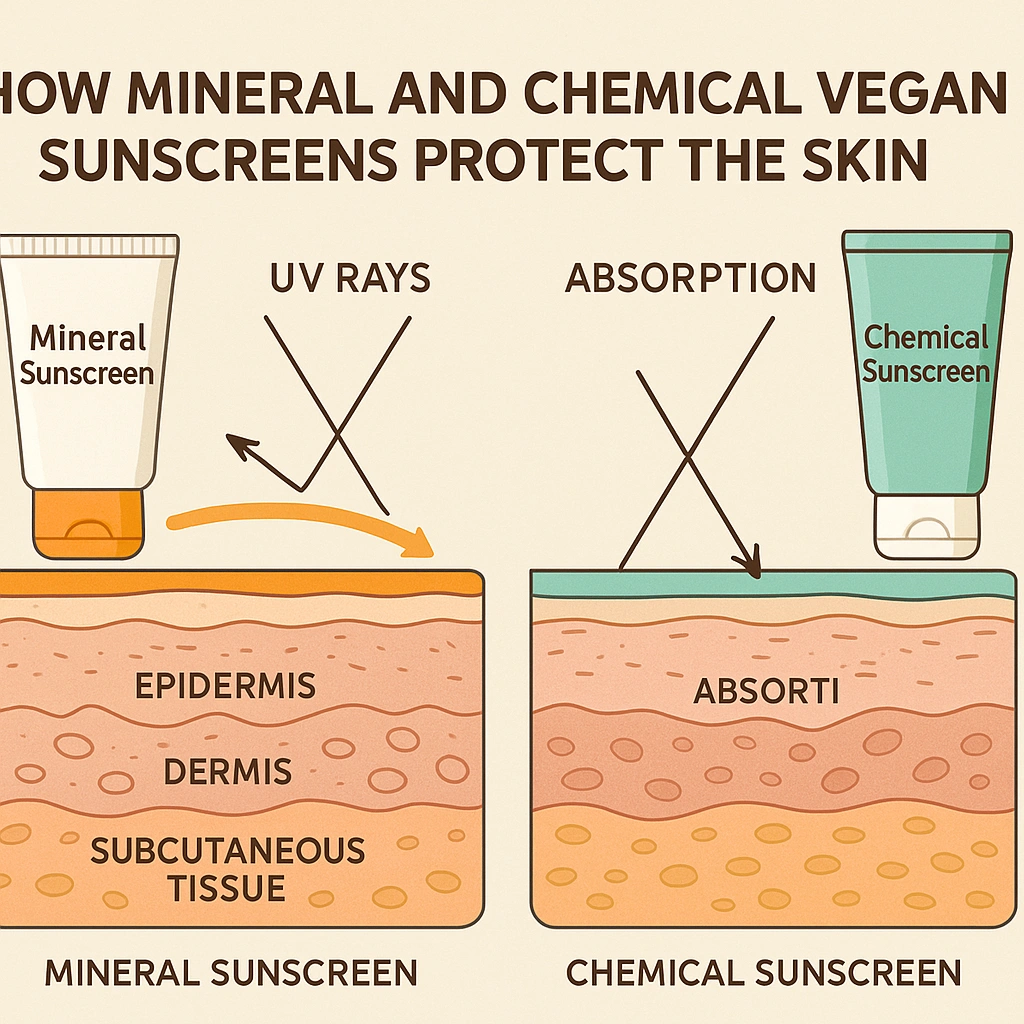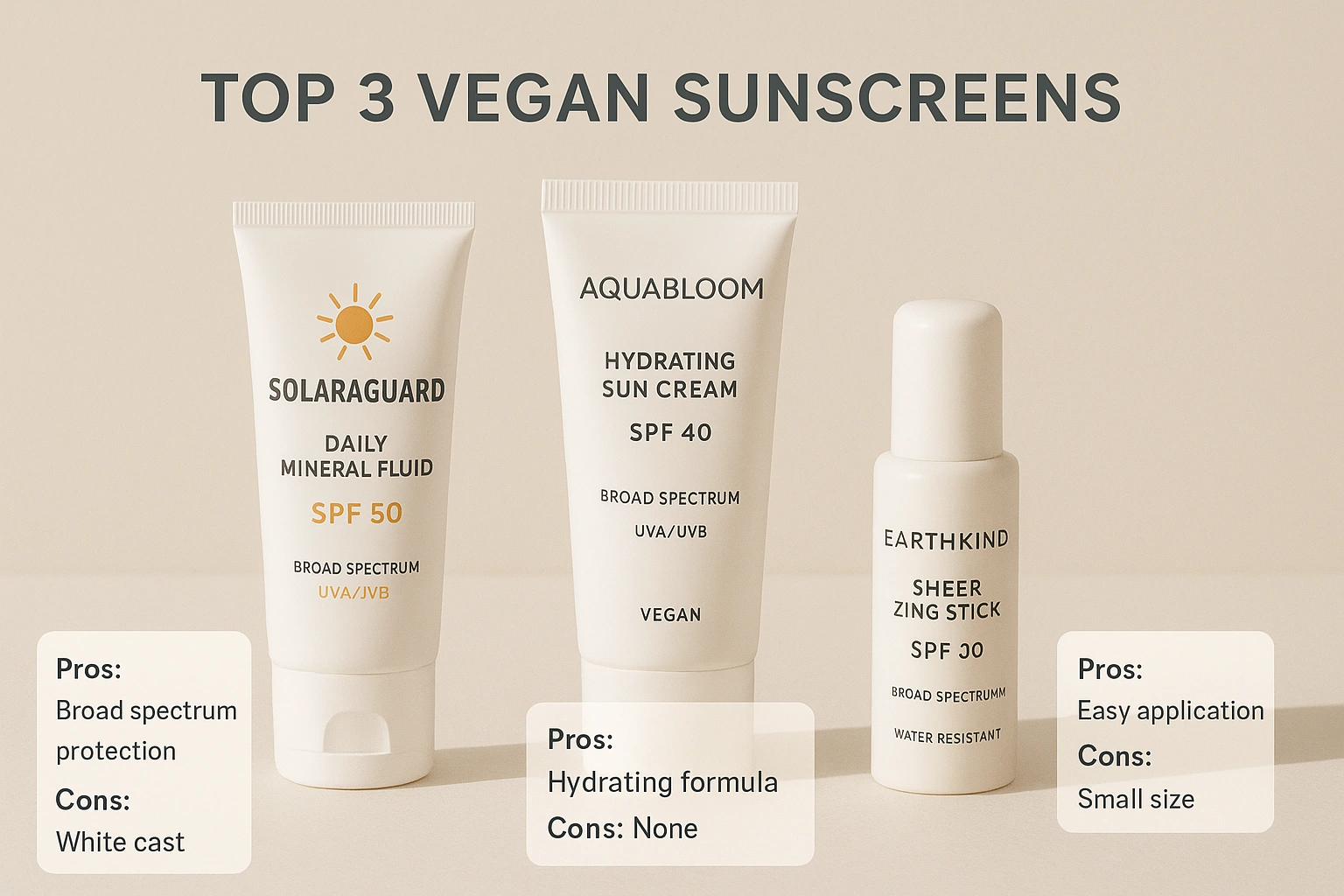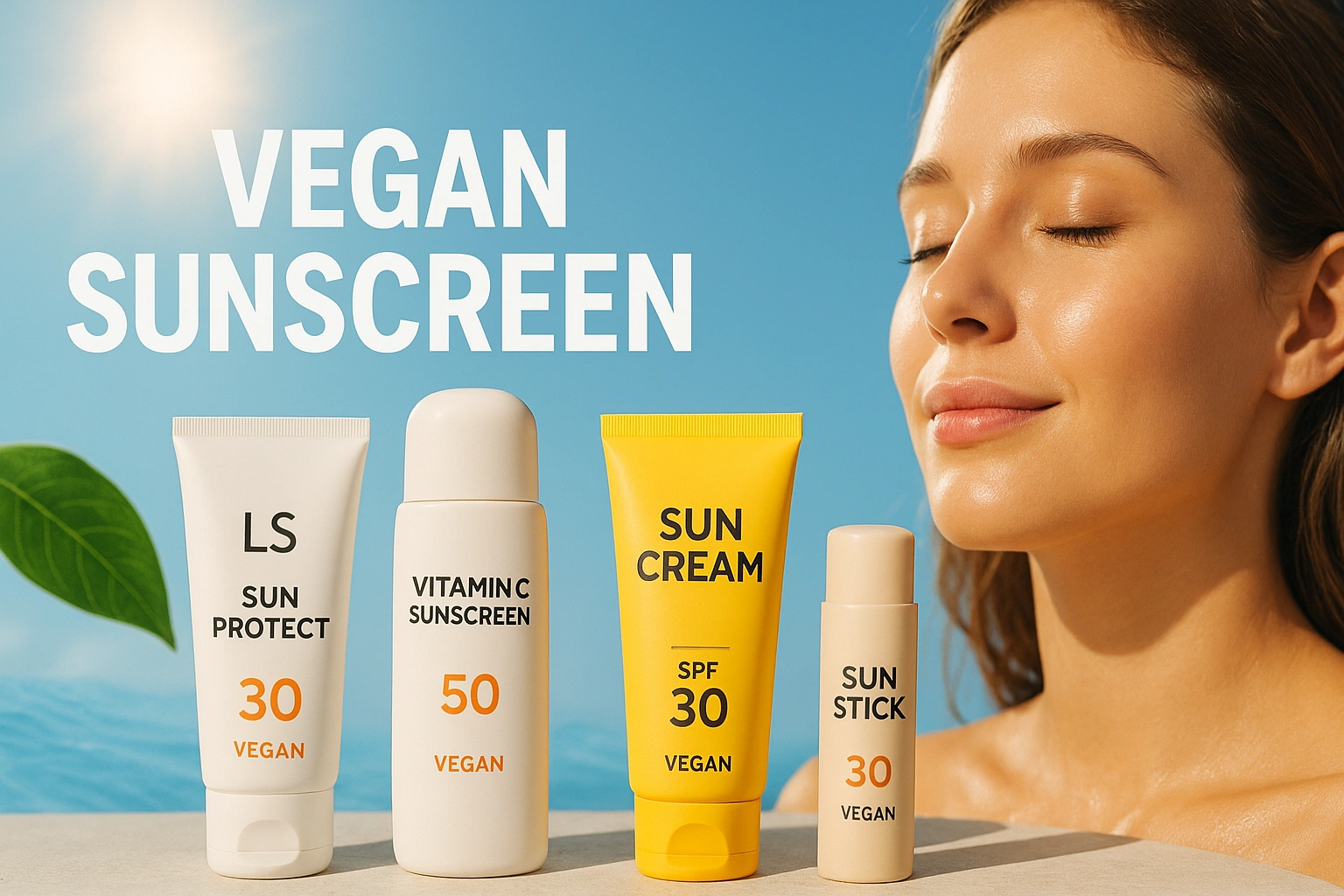Introduction
Remember the days when applying sunscreen meant choosing between a greasy, pore-clogging mess or a chalky white mask? For years, finding effective sun protection that felt good on the skin was a challenge. Now, add ethical concerns to the mix, and the search can feel impossible. But what if you could have powerful, invisible protection that was also kind to animals and the planet? The search is over. High-quality **vegan sunscreen** is no longer a niche product; it’s a skincare revolution.
This guide will walk you through everything you need to know about choosing the perfect vegan sunscreen in 2025. We’ll break down the science, review the top products for every skin type, and give you the confidence to protect your skin effectively and ethically.
What is Vegan Sunscreen?
At its core, vegan sunscreen is a sun protection product formulated without any animal-derived ingredients. This means no beeswax, lanolin, or collagen. But the definition has expanded in recent years to encompass a broader ethical commitment. Today’s best vegan sunscreens are also cruelty-free (not tested on animals) and often focus on **eco-friendly sun protection** by using reef-safe ingredients.
The concern for marine life is significant. According to the National Geographic, an estimated 14,000 tons of sunscreen wash into our oceans each year, contributing to coral bleaching. This has fueled a massive shift towards mineral-based, reef-safe formulas that are kinder to our planet’s delicate ecosystems.

The Benefits of Making the Switch
Choosing a vegan sunscreen is a powerful decision that benefits your skin, the environment, and animal welfare.
Gentler on Your Skin
Vegan sunscreens, particularly mineral formulas that use zinc oxide and titanium dioxide, are often better tolerated by sensitive and acne-prone skin. They tend to omit common chemical irritants, parabens, and synthetic fragrances that can cause breakouts and allergic reactions.
Safer for Marine Ecosystems
By opting for reef-safe formulas, you are actively helping to protect our oceans. These sunscreens do not contain oxybenzone or octinoxate, the two main culprits linked to the destruction of coral reefs. It’s a small change that makes a big collective impact.
An Ethical, Cruelty-Free Stance
When you choose a product certified as both vegan and cruelty-free, you are supporting brands that are committed to ending animal testing. This ethical choice promotes a more compassionate beauty industry, where innovation and technology replace outdated and inhumane practices. You can learn more about how technology drives ethical solutions at airobotics.biz.id.
How to Choose the Right Vegan Sunscreen for Your Skin Type
Not all sunscreens are created equal. Finding your perfect match depends on understanding your skin’s unique needs.
| Skin Type | What to Look For | Key Ingredients |
|---|---|---|
| Oily / Acne-Prone | Lightweight, non-comedogenic, gel or fluid formulas with a matte finish. | Niacinamide, Zinc Oxide, Green Tea Extract. |
| Dry / Mature | Hydrating, creamy lotions with a dewy or natural finish. | Hyaluronic Acid, Squalane, Ceramides. |
| Sensitive | Fragrance-free, mineral-based formulas (100% zinc oxide/titanium dioxide). | Zinc Oxide, Chamomile, Centella Asiatica. |
Top 3 Vegan Sunscreens Reviewed

We tested some of the most popular vegan sunscreens on the market. Here are our top picks that deliver on their promises.
1. SolaraGuard Daily Mineral Fluid SPF 50
This ultra-lightweight mineral fluid feels more like a serum than a sunscreen. It blends in effortlessly with zero white cast, making it a dream for daily wear, even under makeup.
| Pros | Invisible finish, non-greasy, great for sensitive and oily skin. |
| Cons | Higher price point, small bottle size. |
2. AquaBloom Hydrating Sun Cream SPF 40
Perfect for dry skin, this cream is packed with hyaluronic acid and squalane. It provides deep hydration and leaves a beautiful, dewy glow without feeling heavy.
| Pros | Extremely hydrating, doubles as a moisturizer, gives a radiant finish. |
| Cons | May be too dewy for very oily skin types. |
3. EarthKind Sheer Zinc Stick SPF 30
This solid stick is a game-changer for on-the-go application and reapplication. It’s perfect for travel, sports, and protecting sensitive areas like the eyes and lips.
| Pros | Portable and mess-free, great for targeted application, water-resistant. |
| Cons | Not ideal for full-body application due to its size. |
Common Sunscreen Mistakes to Avoid
- Not Using Enough: You need about a nickel-sized dollop for your face alone. Most people under-apply.
- Forgetting to Reapply: Sunscreen isn’t a one-and-done deal. Reapply every two hours, or more often if you’re swimming or sweating.
- Missing Key Spots: Don’t forget your ears, neck, the tops of your feet, and your hairline.
- Relying on Makeup with SPF: The SPF in your foundation is not enough for adequate protection. Always apply a dedicated sunscreen first.
- Saving it for Sunny Days: UV rays penetrate clouds and windows. According to the Skin Cancer Foundation, daily sunscreen use is the single most effective way to prevent skin cancer and premature aging.
Expert Tips for Best Sun Protection
“The best sunscreen is the one you’ll actually wear every day. Find a **vegan sunscreen** with a texture you love, and make it a non-negotiable part of your morning routine, just like brushing your teeth.”
— Dr. Lena Petrova, Dermatologist
- Apply 15 Minutes Before Sun Exposure: This gives the sunscreen time to form a protective film on your skin.
- Use the Two-Finger Rule: Squeeze sunscreen onto your index and middle fingers. This amount is roughly what you need for your face and neck.
- Layer Your Products Correctly: Sunscreen should always be the last step in your skincare routine, before makeup.
Frequently Asked Questions (FAQ)
Q: Does vegan sunscreen leave a white cast?
A: Not anymore! While older mineral formulas were known for this, modern vegan sunscreens use micronized zinc oxide and innovative formulations that blend seamlessly into most skin tones. Many also come in tinted versions to avoid any white cast.
Q: Is vegan sunscreen better for sensitive skin?
A: Generally, yes. Vegan sunscreens, especially mineral-based ones, often omit common irritants like oxybenzone, octinoxate, and synthetic fragrances, making them an excellent choice for sensitive or acne-prone skin.
Q: What does ‘reef-safe’ actually mean?
A: A ‘reef-safe’ or ‘reef-friendly’ sunscreen is formulated without oxybenzone and octinoxate, two chemicals known to cause coral bleaching and harm marine ecosystems. Choosing a reef-safe option is a key part of eco-friendly sun protection.
Q: How often should I reapply vegan sunscreen?
A: The rules are the same for all sunscreens: reapply at least every two hours, and more frequently after swimming, sweating, or towel drying. No sunscreen is completely waterproof or sweatproof.
Conclusion
Choosing a **vegan sunscreen** in 2025 is no longer a compromise. It’s an upgrade. With elegant formulas that cater to every skin type and a commitment to animal welfare and environmental health, these products represent the future of skincare. By making daily sun protection a priority, you are making the single best investment in your skin’s long-term health and vitality. Find a formula you love, apply it generously, and enjoy the sunshine responsibly.
